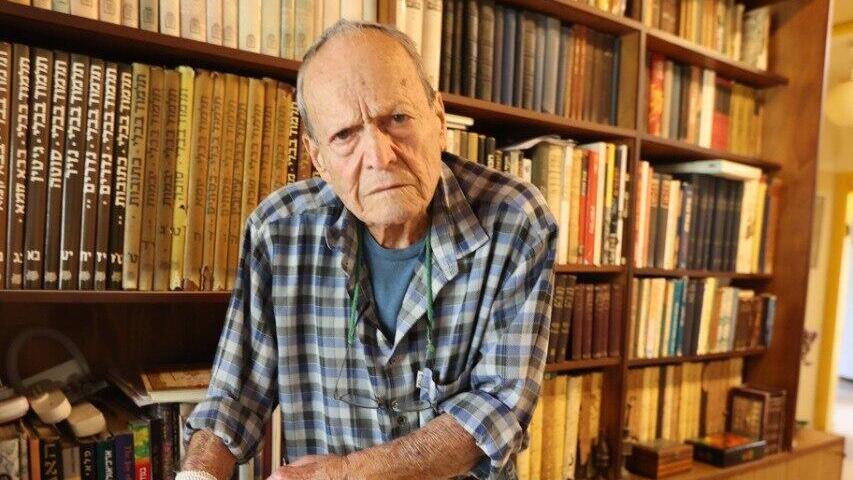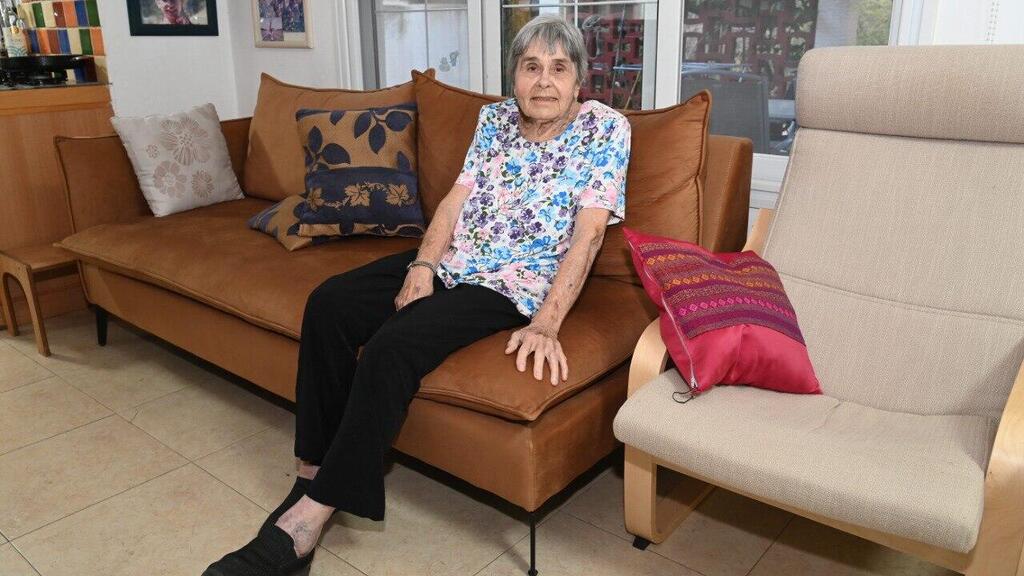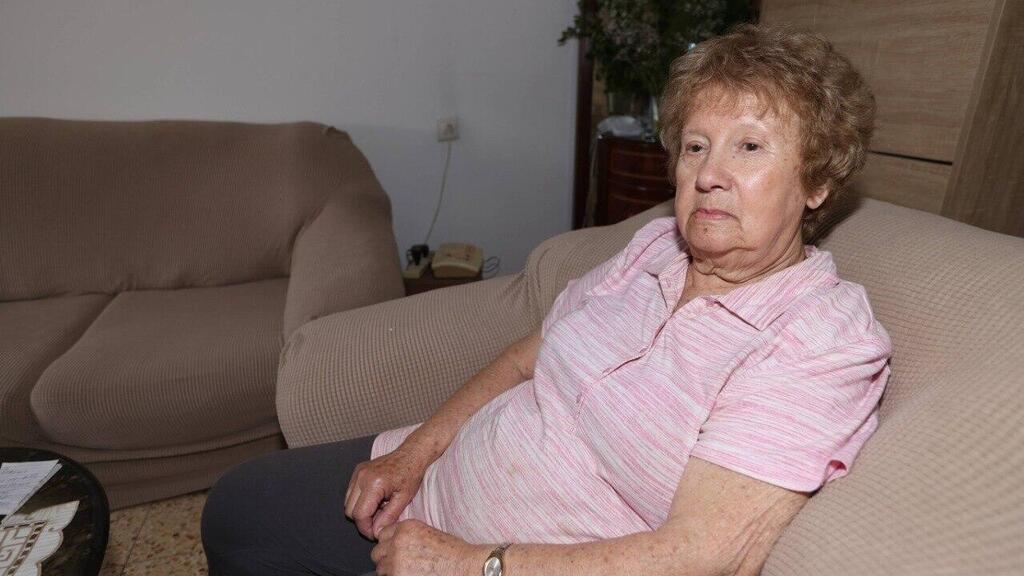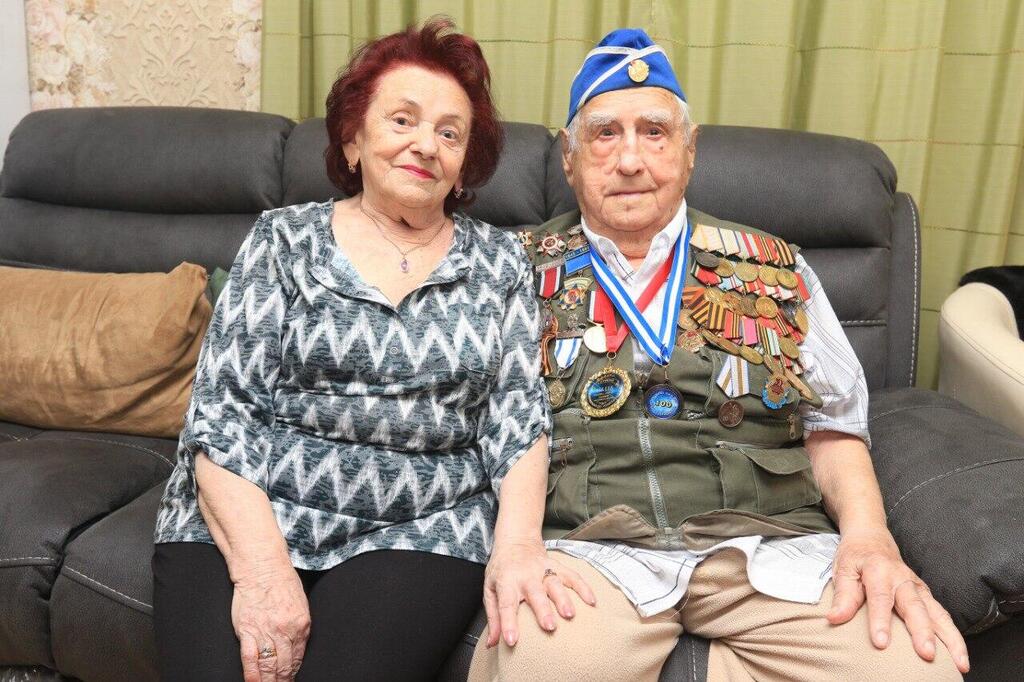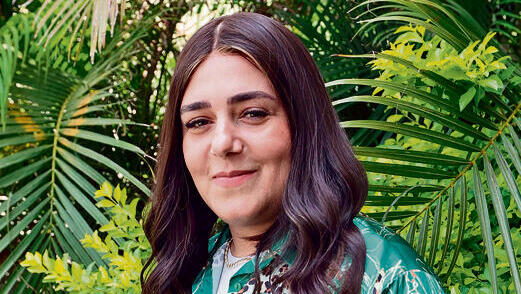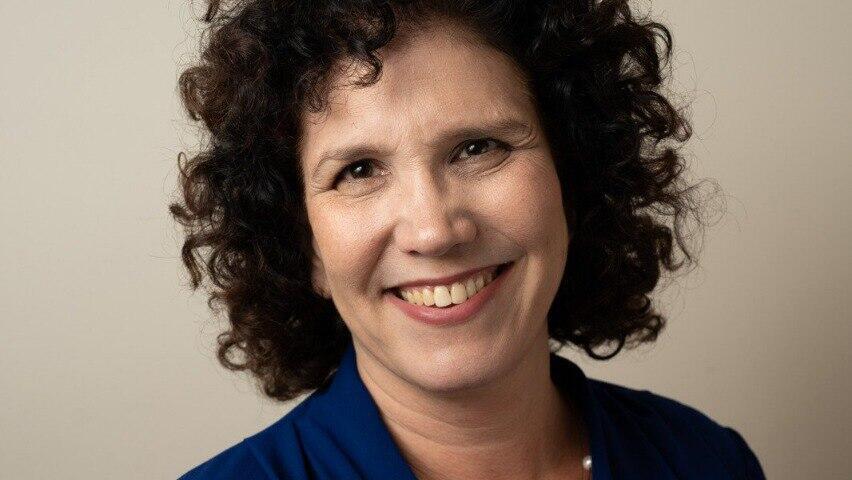Getting your Trinity Audio player ready...
They survived the horrors of the Holocaust and came to Israel to establish a state that would give Jews security. Here, they felt for the first time that they no longer needed to fear, and then the October 7 massacre happened - shaking the lives of thousands of Holocaust survivors living near the Gaza border, southern and northern Israel. One of them, Moshe Riedler from Kibbutz Holit, was murdered, another - Shlomo Mansour from Kibbutz Kisufim - was abducted, and about 2,000 fled from their homes. These are some of their stories:
'It's a miracle they managed to guard the fence'
Yosef Bernhard, 92, from Kibbutz Sa'ad made Aliyah to Israel from Berlin in 1938. He recounted, "After Hitler's accursed first speech, my grandfather, who was a Zionist, gathered our family and announced that we needed to make an effort to leave Germany. It was difficult for my family to obtain papers, so in fact, I arrived in the Land of Israel as a refugee, with a forged document. I still carry this feeling with me to this day. It's something you carry with you all your life."
He arrived at Sa’ad 74 years ago with a gathering from the Bnei Akiva movement, where he married and had five sons. Today he also has 17 grandchildren and seven great-grandchildren. "Through agricultural work, we took control over this place," Bernhard said. "We grew wheat there, laid water pipes. That's the Zionist spirit."
October 7, he feels, turned him into a refugee for the second time in his life. "We don't turn on the radio on Saturdays, and on that day, I still didn't fully understand what had happened," he explained.
"It was only the next day that we realized the magnitude of the disaster. My concern grew when I heard about our neighbors in Kibbutz Kfar Aza, who lost about 70 members. It really affected me. I couldn't believe it happened. It shattered me. There are only 200 meters between the kibbutz gates, and it's a miracle that Sa’ad’s alert squad managed to guard the fence."
Sa'ad’s residents were evacuated to a hotel on the Dead Sea. "If they ask me what was the most important thing I've done in my life, apart from my raising my family, of course, I would say it's the fact that I established a settlement on the Israel’s border," he said.
"It was very difficult for me to leave it for half a year. Just over a month ago, we returned home. For me, it was a very great gift, although, to this day, we continue to hear battles, explosions, and the sound of gunfire not far from us."
'I didn't think it was possible'
Nothing moved 92-year-old Holocaust survivor Shoshana Karmin from her home in Kibbutz Magen until October 7. "I don't get stressed from wars," she explained. "After I came to Israel, there were many wars here. I always wondered why they call it a war? After all, there’s electricity, water, public transportation, television, schools, and open shops. I experienced a different war during the Holocaust in Hungary. All the things I counted didn't exist, as well as many other things."
She was brought to the Budapest ghetto with her mother when she was 11. "My mother's brother was taken to Auschwitz and didn't return," she recounted. "As a child, I didn't really understand the dangers, but it seemed unreasonable to me to be in a closed place, and I decided that we wouldn't stay there. My mother yielded to my request, and that's how we survived. We fled to a printing house and stayed there throughout the war."
She arrived in Israel at the age of 17. "I enlisted in the military, and in the second year, in the Nahal Brigade, we worked in agriculture and arrived at Kibbutz Magen. It was here I met my husband, and we had four children, 12 grandchildren, and 10 great-grandchildren. I've never been pressured by security escalations. We don't even go to the safe room when sirens sound because we wouldn't make it on time anyway.
“But I never thought that a situation could arise where our homes would be infiltrated. I couldn't believe that something like this could happen in my country. It's just absurd that Israel didn't know that Hamas was planning to come and that it could have happened, that it was even possible."
'I thought we had an army that protects us'
On the morning of October 7, Holocaust survivor Rosa Shozki, 88, was alone in her home in Sderot. "I have a hearing problem, and I wasn't aware of what was happening outside at all," she shared. "They only told me that terrorists passed through the neighborhood the next day. Luckily, I didn't see them; otherwise, I would have died of fear on the spot. The stories I heard about what happened here reminded me of stories from World War II. I didn't think such things could happen in our country."
She grew up in Russia and was a little girl when World War II broke out. "I don't remember much from that time," she said. "Mainly that there wasn't enough food. Sometimes, we’d put a little flour in a pot of water and cook something like soup to make it filling. We also had to hide all the time. For days, I would hide under the table or a chair. I remember the fear. It's a feeling that’s deeply ingrained in my memory."
She made Aliyah to Israel in 1990. At first, she arrived at Be'er Sheva, and then moved to Sderot. "I thought we were safe there, that we had an army that protects us," Shozki, who was evacuated from her home following the events of October 7, said. "I didn't think something like this could happen here. There are still rocket sirens sounding in Sderot, and I'm afraid. When I'm alone during those times, it's even worse. I'm really trembling with fear."
Her medical condition isn’t optimal. "I have diabetes and struggle with my hearing condition," she explained. "And recently, my condition has deteriorated, and I need a walker to move around."
'I see the terrorist’s eyes'
When the rocket sirens began sounding on October 7, Holocaust survivors Ella Panomarov, 87, and her partner Lev Arbitman, 101, from Ofakim quickly headed toward the door of their home in Ofakim, aiming to reach the nearby bomb shelter.
"Suddenly, I heard a very loud noise from outside," Ella recounted. "I opened the door, went out, and saw my neighbor's daughter lying in a pool of blood. I lifted my eyes and saw a Hamas terrorist standing 10 meters away from me. He looked me in the eyes and pointed his gun at my face.
“I was shocked. In my heart, I prayed, and slowly turned around - and went back to my house. I was sure he would shoot me. I remember that as I walked, I thought: 'God, I have lived a full life. Take me, I’m old, just make them leave the children alone. Save their lives.' It didn't help. My neighbor's two children were murdered that same morning."
Since then, she can hardly sleep. "I'm tired, exhausted, but when I close my eyes, I see the terrorist’s eyes, get frightened and wake up," Panomarov said. "We don't have a safe room, so we always used to run to the bomb shelter outside, but since the morning when the terrorists waited for us by the door, I'm afraid to leave the house. I'm also still receiving psychological treatment. I love Ofakim, I don't want to leave, but I'm afraid it isn’t safe here, and I'm worried about my children and grandchildren too."
'Trauma from the Holocaust was triggered by the recent events'
Today, there are 133,362 Holocaust survivors and individuals who were affected by antisemitic persecution during World War II living in Israel. According to the Welfare and Social Affairs Ministry, approximately 2,500 Holocaust survivors directly experienced the horrible events of October 7.
Since the war began, 86 Holocaust survivors who evacuated their homes have passed away. In addition to these, there are also those who lost children, grandchildren, and friends on that same Saturday, or those whose trauma from the Holocaust was triggered by the recent events.
The Special Committee on the Treatment of Holocaust Survivors will convene on Monday for a special discussion on the survivors who evacuated their homes following October 7. "The seven months of war have affected all of our lives, but their implications for Holocaust survivors have a unique element," said Committee Chairperson MK Meirav Cohen.
"That Saturday and the continuous broadcast of horrors have rekindled traumas and pains among all Holocaust survivors, especially among those who lived close to the Gaza border. This is a generation that’s aging and slowly disappearing. We owe them not only the ability to live with dignity at this age but also to see the nation's reconstruction and the return of the hostages," she added.
Moran Ben David, head of the International Fellowship of Christians and Jews’ Southern District Operations Division, explained, "Their main difficulty comes from the realization that it happened here. During World War II, they weren’t in the Jewish state. On October 7, it happened in Israel, in our safe place. Some of them lost neighbors, friends, people close to them. There are survivors who have grandchildren who are IDF soldiers, and the trauma intensifies."
According to Anat Shuster, Director of Social Services at the Foundation for the Welfare of Holocaust Victims, the old memories of the war helped some survivors cope with the events. "The Holocaust survivors who live close to the Gaza border whom we spoke with had tremendous mental resilience, much more than the youth," she said.
"Something about how they grew up and the suffering they went through during and after the Holocaust gave them the resilience and tools to cope with this terrible situation,” she added.


